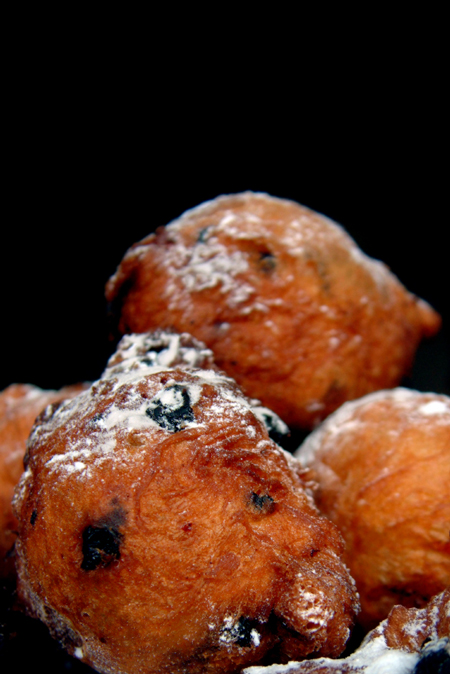Various theories exist about the eating of ‘oliebollen’ (doughnut balls) around the turn of the year. For one, there is a reference to the Germanic tribes in the area that was to be called the Netherlands later on. Between December 26 and January 6 they celebrated Yule tide and are alleged to have eaten and sacrificed oil cakes (the flat predecessor of the ‘oliebol’). Another theory is that its origin dates back to the end of the Middle Ages. At that time Christmas heralded the end of Lent and oil cakes were a nourishing treat. The last option is that the ‘oliebol’ comes from Portugal. Portuguese Jews who fled to the Netherlands during the Spanish Inquisition are reported to have brought along the recipe.
For many centuries the Dutch would eat oil cakes. The first ‘oliebollen’ were baked in the 18th century. The period cookery books then advised baking more food in oil, resulting in the cakes becoming more bulbous. In 1868 the word ‘oliebol’ was included in the dictionary.
The Algemeen Dagblad organizes an ‘oliebollen’ test every year. A panel samples and tastes them in various places and decides which baker of ‘oliebollen’ can laud himself as the best one of that year. In 2010 master baker Voskamp from Spijkenisse won the test. (HB)

|



